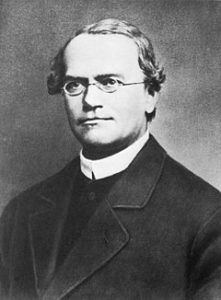One of my atheist friends (yes, I really do have them) promised to read The God Conclusion and said he would publish a review when he finished. Amazon (as typically the case) refused to allow him to post the review, so my friend Tony sent his review to me and I'm posting it on my website. Tony is an honest broker, and fair. I like what he wrote, even when he disagrees with me, and we're going to talk about it in further detail on my next podcast. Here is his review of my book: The Introduction offers important context and sketches some of the arguments to follow. Chapters 1-10 of the book constitute a nearly point-by-point response to "The God Delusion" by biologist Richard Dawkins, with chapters 11-15 forming a positive argument in favour of the author's own position, "The God Conclusion".In his Introduction, Leonard recounts personal experiences that have led him to believe in the Christian God. This sets up the tone of the entire work - this is a book that mixes philosophy, science, and theology with personal thought. To my mind, that is what makes it worthwhile. He also sets up some of the themes he will return to later in the text, including that not believing in God is an act of free will rather than unbiased evaluation. He gives Dawkins credit where credit is due for intelligence and erudition, which is a notable thing contrasted to the generally toxic tone dominating the "God debate". He closes the introduction by pointing out that truth MATTERS. In our current age of "post-fact" discourse, this is also a worthy reminder.Leonard offers responses to … [Read more...]
Selfish genes
According to the scientific definition, a gene is a distinct unit of information, in the form of a specific pattern of nucleotides that comprise part of a chromosome. Roughly translated into English, genes are packets or sequences of DNA (information) that specifically code for one protein, whereas a genome is the full genetic code, or set of rules, for a given organism. For example, the genome of a primate will have specific genes that define the development of fur, arms, and legs, while the genome of a bird will have certain genes that cause development of beaks, feathers, and wings. Both organisms will have genes responsible for developing heart, lungs, eyes, and other internal organs that almost all animals share in common, while also having enough genetic material that a single individual can be uniquely identified out of millions of other people. Only identical twins share the same DNA, but even they can be uniquely identified through their fingerprints. DNA is basically a recipe for how to create an organism from scratch. The average layperson may not be able to recognize an individual gene under a microscope, but any two experts in genetics should be able to identify the specific pattern of a known gene. Most of us have seen enough TV shows like NCIS and CSI delving into forensic police investigative work to know that leaving DNA evidence at the scene of a crime is just about as damning as a voluntary confession—unless the perpetrator can convince the jury that the evidence was planted in an attempt to frame them, the … [Read more...]
Common descent versus common design
My latest "Eureka!" moment while arguing that Charles Darwin's famous theory of common descent with modification is actually a rather pathetic explanation for the modern diversity of life came when I realized that the work of Gregor Mendel had been purloined by evolutionary biologists and made the centerpiece of their argument. Clearly, Mendel's research into genetic recombination demonstrated how descent with modification produced variety in plants, and it stood to reason to assume that the same sort of variety was produced by sexual reproduction by animals. Indeed, anyone brave (or foolish) enough to express skepticism at the idea that Charles Darwin's theory explains the origin of new species had better be prepared for an unprecedented degree of anger, scorn, ridicule, and frequent suggestions to consider remedial biology classes. The question remains: does Mendel's work truly explain the origin of new species, or is that explanation flawed? The idea sounds preposterous on the surface, sort of like the plot of a bad science fiction movie titled Planet of the Furless Apes. Darwin famously scribbled "Monkeys make men" in one of his notebooks to capture the idea that modern evolutionary biologists might call "changes of accumulations in allele frequency changes", which is a fancy way of saying that humans evolved from apes when certain DNA patterns become dominant while others become recessive. Humans lost their fur, grew physically smaller but developed bigger brains, simply because we could. It is theoretically possible, and the only other potential explanation in … [Read more...]
The “smoking gun” evidence for intelligent design
The computer I'm using to create this information is an obvious product of intelligent design. We even know the designer(s) are employees of Apple computers. In fact, "design" does not exist until produced by intelligence, so the term would seem to be slightly redundant. In the absence of intelligence the presence of design, no matter how beguiling it may be, could be assumed to be an illusion. But is that a safe assumption? In a way, this article also serves as proof that intelligent design exists. I am choosing my words more carefully than unusual, knowing that the title of the article and subject matter will surely attract the attention of my harshest critics, who also happen to be the intended audience. No typos for you! Intelligent design has also been described in an online dictionary as "a theory that life, or the universe, cannot have arisen by chance and was designed or created by some intelligent entity." Biologist Jerry Coyne, author of the book Why Evolution is True, also wrote a screed titled "THE CASE AGAINST INTELLIGENT DESIGN", which he neglected to make despite its length. The extraordinarily long essay turned out to be nothing more than an extended defense of evolution, combined with a completely dishonest portrayal of intelligent design as an attempt to reconcile scientific evidence with Young Earth Creationism (YEC). What evidence do people like Mr. Coyne or Richard Dawkins offer in rebuttal to the idea of intelligent design? Advocates of Darwin's theory of evolution (or some permutation of it, such as neo-Darwinism) will insist that the … [Read more...]
Bill Nye, the sciency guy
Before I get started with this post, let me first say that I was a big fan of "Bill Nye, the Science Guy" when my kids were young -- anything remotely educational was better than "Pokemon" or "Teenage Mutant Ninja Turtles" -- cartoons that weren't mercifully killing brain cells, they were torturing them to death. It's virtually impossible to dislike the public persona. As an added benefit was the catchy jingle for the show intro: "Bill Nye the science guy -- Bill! Bill! Bill! Bill!" turned out to be infinitely more pleasant to have permanently etched into your brain than "...heroes on a half shell - Turtle power!" However, even back then I realized that Bill Nye was not actually a science guy, but a television personality playing the role of a science educator of young children. Bill Nye had been an engineer before he entered the world of entertainment as a stand-up comic. "Bill Nye the Science Guy" was literally born on a comedy ensemble show -- it was a character he created that turned out to be a long running joke that people now take very seriously. At a website called Big Think where Nye answers questions from viewers, he is listed in their roster of "experts" as Television Host and Science Educator -- and that catchy, rhyming title of "Bill Nye the Science Guy" appears to give him instant credibility. Basically, Bill Nye merely regurgitates what he's learned from reading popular science books and tries to sound really smart while occasionally reminding his followers that he once was a student of Carl Sagan, presumably to borrow from Sagan's credibility as … [Read more...]



